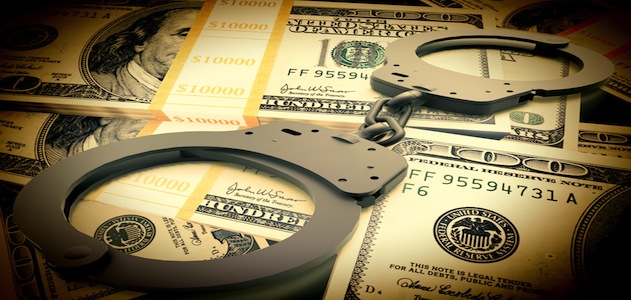A Massachusetts real estate attorney pleaded guilty last week to charges stemming from a wide-ranging scheme to defraud banks and mortgage companies as part of a conspiracy involving numerous sham short sales.
Hyacinth Bellerose, 50, of Dunstable, Mass., pleaded guilty last week to one count of conspiracy to commit bank fraud.
According to the U.S. Attorney’s Office for the District of Massachusetts, Bellerose colluded with others – including a loan officer and a real estate agent who were not identified in the charging document – to defraud various banks through the use of bogus short sales of homes in Haverhill, Lawrence and Methuen.
The conspiracy began in approximately August 2007 and continued through June 2010. According to the U.S. Attorney, during that time period, home values in Massachusetts declined precipitously, and many homeowners found themselves suddenly owing more on their home than the home’s value.
As part of the scheme, Bellerose and her co-conspirators submitted materially false and misleading documents to numerous banks in an effort to induce them to permit the short sales, which would release the purported sellers from their unpaid mortgage debts, while simultaneously inducing the purported buyers’ banks to provide financing for the deals.
But, the purported sellers simply stayed in the homes with their debt substantially reduced while Bellerose and others made money from the transactions fees associated with the fake sales, the U.S. Attorney said.
In some cases, the conspirators then re-sold the properties in genuine arms-length transactions for a profit.
As part of the conspiracy, the conspirators falsely led banks to believe that the sales were arms-length transactions between unrelated parties, when in fact, the transactions were not arms-length, and the sellers retained control of (and frequently continued to live in) the properties after the sale.
In some cases, the purported third-party buyers were actually the spouses, parents or children of the purported sellers.
For example, in one transaction, the unnamed loan officer and the loan officer’s spouse signed two purchase and sale agreements, dated five days apart, in which they purported to agree to the sale of their Methuen home to a third party.
In the first agreement, they claimed to sell the property for $299,000. In the second, they claimed to sell the property for $289,000.
The first agreement was provided to Chase Home Finance, which held the first mortgage on the home, and also affirmed that they were unrelated and that there was no agreement that would allow the sellers to remain in the property after the sale.
In fact, the supposed buyer was the mother of one of the sellers, who intended to remain in the property after the supposed sale.
To facilitate the transaction, the conspirators submitted to Bank of America a loan application on behalf of the purported buyer that falsely represented her employment status, and was accompanied by phony earnings statements.
The conspirators also submitted to Bank of America the second purchase and sale agreement, reflecting the higher purported sale price of $299,000.
In connection with the purported sale, Bellerose prepared two HUD-1 Settlement Statements.
One Settlement Statement was provided to Chase as the short-selling bank, and reflected a purported sale price of $289,000, and a purported buyer deposit of $15,216.
The other Settlement Statement, which was provided to Bank of America and the Federal Housing Administration, reflected a purported sale price of $299,000, and a purported buyer deposit of $14,916.
In fact, the purported buyer did not make any down payment toward the sale, which was financed entirely by the mortgage loan from Bank of America.
The charge of conspiracy to commit bank fraud provides for a sentence of no greater than 30 years in prison, three years of supervised release and a fine of $1 million.






